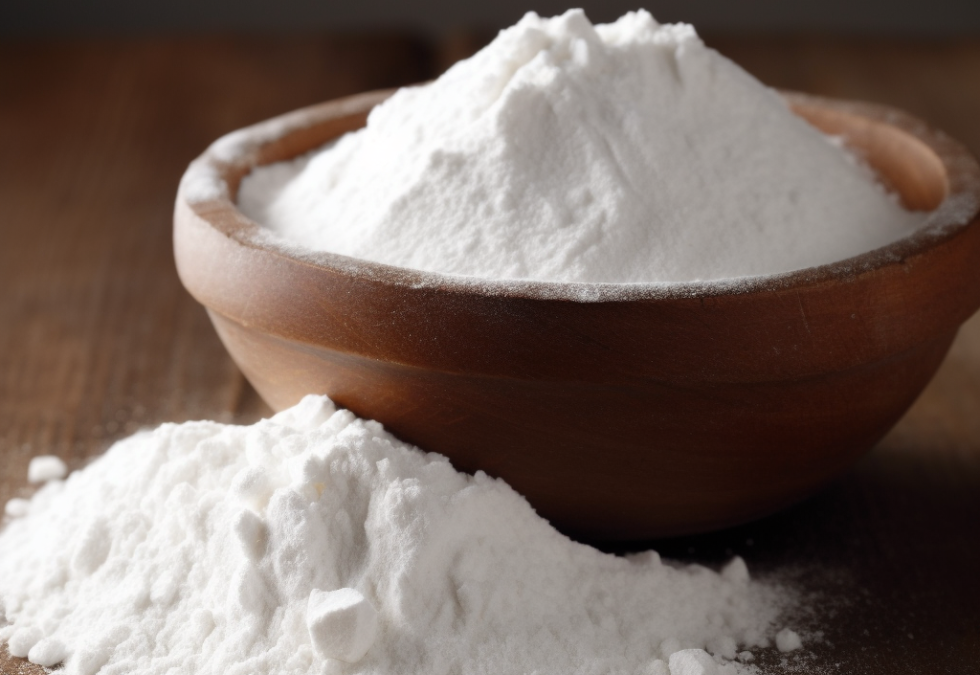
Maltodextrin is a carbohydrate that finds extensive use in both the food industry and various other applications. It appears as a white powder or granule, composed of chains of glucose molecules that are produced through the hydrolysis of starch, typically sourced from corn, wheat, potatoes, or rice. Due to its unique properties, maltodextrin plays a crucial role in many industries. These include its significance in the food business, its nutritional properties, its hygroscopic nature, its gluten-free and non-allergenic characteristics, and its use in product formulation. Maltodextrin is valued for its thickening, stabilizing, and binding abilities, as well as being a quick source of energy. These functional characteristics make it a key ingredient in a variety of products, contributing to product formulation, quality control, and overall functionality across multiple industries.
Maltodextrin’s versatility stems from its natural origins. It is produced from starch through hydrolysis and is found in both food and non-food items. The main sources of maltodextrin include corn, potatoes, rice, wheat, tapioca, and other grains, with the selection of the source often depending on factors such as cost, availability, and desired product attributes. While the properties of maltodextrin may vary slightly depending on its source, it is generally used for similar purposes across industries, particularly as a thickener, filler, and binding agent. Additionally, for individuals with allergies or sensitivities to specific starch sources, the chosen source of maltodextrin can affect the allergenicity of the final product. Even though it is highly processed, maltodextrin primarily consists of glucose molecules, which are rapidly digested and absorbed by the body, making it an immediate source of energy.
In skincare, products often include a variety of ingredients, each contributing different benefits to the skin. These benefits can range from hydration, anti-aging, and acne control to sun protection, exfoliation, and even skin tone improvement. Other potential benefits include soothing and calming the skin, providing antioxidant protection, repairing the skin’s barrier, firming and tightening, reducing redness, healing wounds, controlling oil, protecting against pollution, and boosting collagen production. The effectiveness of skincare products, however, depends on several factors, including the specific ingredients used, their concentrations, the product’s overall formulation, and the individual’s skin type. To achieve the best results, it is important to tailor skincare routines to specific needs and concerns and maintain a consistent product regimen.
Although maltodextrin is not commonly used as a direct active ingredient in skincare products aimed at improving skin health, it plays a significant role as a functional component. Maltodextrin can be found in skincare products, where it serves to enhance texture and consistency. For instance, it is used to thicken and texturize formulations, contributing to a smooth and creamy texture in creams, lotions, and gels, thereby improving the user’s experience and ease of application.
Maltodextrin also acts as a stabilizing agent in skincare products that contain both water and oil components. Its presence prevents the separation of these components, ensuring the stability and uniformity of the product. Additionally, maltodextrin can help regulate oil absorption on the skin’s surface, which is particularly beneficial in products designed for people with oily or combination skin types.
Moreover, maltodextrin is used as a bulking agent in some skincare formulations. It adds volume to the product without significantly altering the texture or other essential characteristics. While it does not directly provide skin health benefits, maltodextrin contributes to a better skincare experience by enhancing the feel and usability of the product. This, in turn, may encourage consistent product use, which is essential for achieving long-term skincare goals.
Ultimately, maltodextrin’s role as a functional ingredient enhances the overall quality of skincare products, supporting their performance and user satisfaction, which are crucial for maintaining a consistent skincare routine and achieving optimal results.



